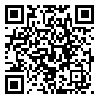Thu, Apr 17, 2025
[Archive]
Volume 11, Issue 1 (march 2014)
IJMSE 2014, 11(1): 27-38 |
Back to browse issues page
Download citation:
BibTeX | RIS | EndNote | Medlars | ProCite | Reference Manager | RefWorks
Send citation to:



BibTeX | RIS | EndNote | Medlars | ProCite | Reference Manager | RefWorks
Send citation to:
M. H. Goodarzy, H. Arabi, M. A. Boutorabi, S. H. Seyedein, H. Shahrokhi. DISLOCATIONS STRUCTURE AND SCATTERING PHENOMENON IN CRYSTALLINE CELL SIZE OF 2024 AL ALLOY DEFORMED BY ONE PASS OF ECAP AT ROOM TEMPERATURE. IJMSE 2014; 11 (1) :27-38
URL: http://ijmse.iust.ac.ir/article-1-633-en.html
URL: http://ijmse.iust.ac.ir/article-1-633-en.html
Abstract: (23594 Views)
Variation in microstructural features of 2024 aluminum alloy plastically deformed by equal channel angular pressing (ECAP) at room temperature, was investigated by X-Ray diffraction in this work. These include dislocation density dislocation characteristic and the cell size of crystalline domains. Dislocations contrast factor was calculated using elastic constants of the alloy such as C 11, C 22 and C 44 . The effect of dislocations contrast factor on the anisotropic strain broadening of diffraction profiles was considered for measuring the microstructural features on the base of the modified Williamson-Hall and Warren-Averbach methods. Results showed that the dislocations density of the solution annealed sample increased from 4.28×10 12m-2 to 2.41×10 14m-2 after one pass of cold ECAP and the fraction of edge dislocations in the solution annealed sample increased from 43% to 74% after deformation. This means that deformation changed the overall dislocations characteristic more to edge dislocations. Also the crystalline cell size of the solution annealed sample decreased from 0.83μm to about 210nm after one pass of ECAP process at room temperature
Type of Study: Research Paper |
Send email to the article author
| Rights and permissions | |
 |
This work is licensed under a Creative Commons Attribution-NonCommercial 4.0 International License. |






